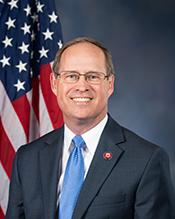0
0
0
Rural Physician Workforce Preservation Act
12/28/2024, 9:23 AM
Summary of Bill HR 8235
The Rural Physician Workforce Preservation Act, also known as Bill 118 hr 8235, is a piece of legislation currently being considered by the US Congress. The main goal of this bill is to address the shortage of physicians in rural areas across the country.
The bill proposes several measures to help attract and retain physicians in rural areas. One key provision is the establishment of a loan repayment program for medical professionals who agree to work in underserved rural communities. This program would provide financial assistance to help alleviate the burden of student loan debt for physicians who choose to practice in these areas.
Additionally, the bill aims to increase funding for medical residency programs in rural areas. By providing additional resources for training programs in underserved communities, the hope is that more physicians will choose to practice in these areas after completing their training. Another important aspect of the bill is the creation of incentives for medical schools to prioritize training students for rural practice. By offering grants and other incentives to medical schools that focus on rural medicine, the bill seeks to increase the number of physicians who are prepared to work in rural areas. Overall, the Rural Physician Workforce Preservation Act is a comprehensive piece of legislation that aims to address the critical shortage of physicians in rural communities. By providing financial assistance, increasing funding for residency programs, and incentivizing medical schools to prioritize rural training, the bill seeks to ensure that all Americans have access to quality healthcare, regardless of where they live.
The bill proposes several measures to help attract and retain physicians in rural areas. One key provision is the establishment of a loan repayment program for medical professionals who agree to work in underserved rural communities. This program would provide financial assistance to help alleviate the burden of student loan debt for physicians who choose to practice in these areas.
Additionally, the bill aims to increase funding for medical residency programs in rural areas. By providing additional resources for training programs in underserved communities, the hope is that more physicians will choose to practice in these areas after completing their training. Another important aspect of the bill is the creation of incentives for medical schools to prioritize training students for rural practice. By offering grants and other incentives to medical schools that focus on rural medicine, the bill seeks to increase the number of physicians who are prepared to work in rural areas. Overall, the Rural Physician Workforce Preservation Act is a comprehensive piece of legislation that aims to address the critical shortage of physicians in rural communities. By providing financial assistance, increasing funding for residency programs, and incentivizing medical schools to prioritize rural training, the bill seeks to ensure that all Americans have access to quality healthcare, regardless of where they live.
Read the Full Bill
Current Status of Bill HR 8235
Bill HR 8235 is currently in the status of Bill Introduced since May 2, 2024. Bill HR 8235 was introduced during Congress 118 and was introduced to the House on May 2, 2024. Bill HR 8235's most recent activity was Placed on the Union Calendar, Calendar No. 807. as of December 27, 2024
Bipartisan Support of Bill HR 8235
Total Number of Sponsors
2Democrat Sponsors
0Republican Sponsors
2Unaffiliated Sponsors
0Total Number of Cosponsors
0Democrat Cosponsors
0Republican Cosponsors
0Unaffiliated Cosponsors
0Policy Area and Potential Impact of Bill HR 8235
Primary Policy Focus
HealthPotential Impact Areas
- Health care coverage and access
- Health personnel
- Higher education
- Medical education
- Medicare
- Rural conditions and development
Alternate Title(s) of Bill HR 8235
Rural Physician Workforce Preservation Act
Rural Physician Workforce Preservation Act
To amend title XVIII of the Social Security Act to modify the distribution of certain additional graduate medical education positions under the Medicare program.
Comments
Sponsors and Cosponsors of HR 8235
Latest Bills
Fairness in Veterans' Education Act of 2025
Bill S 972December 10, 2025
To designate the facility of the United States Postal Service located at 840 Front Street in Casselton, North Dakota, as the "Commander Delbert Austin Olson Post Office".
Bill HR 1830December 10, 2025
Veterans Mental Health and Addiction Therapy Quality of Care Act
Bill S 702December 10, 2025
To remove restrictions from a parcel of land in Paducah, Kentucky.
Bill HR 1276December 10, 2025
Lower Elwha Klallam Tribe Project Lands Restoration Act
Bill HR 2388December 10, 2025
Quinault Indian Nation Land Transfer Act
Bill HR 2389December 10, 2025
Southcentral Foundation Land Transfer Act of 2025
Bill HR 3620December 10, 2025
A bill to designate the facility of the United States Postal Service located at 201 West Oklahoma Avenue in Guthrie, Oklahoma, as the "Oscar J. Upham Post Office".
Bill S 2283December 10, 2025
Shingle Springs Band of Miwok Indians Land Transfer Act of 2025
Bill HR 2302December 10, 2025
ASCEND Act
Bill S 1437December 10, 2025
